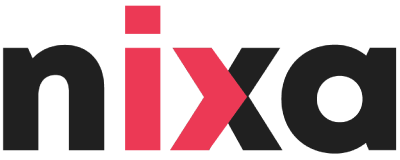Insights & Thought Leadership
Expert perspectives on AI, enterprise software, digital transformation, and the future of business technology. Stay ahead with insights from our engineering and product teams.
Latest Articles & Insights
Academic perspectives on enterprise technology and innovation
The Authentic Journey: An Open Letter on Industry Change and Nixa's Transformation
After over a decade in the trenches of custom software development, I'm writing to share the honest truth about our industry, the patterns we've discovered, and the fundamental changes coming to enterprise software. This is our authentic story of transformation.
Vector Search Integration Hell: Making Redis + OpenAI Embeddings Production-Ready
Deep dive into solving performance, memory management, and reliability challenges when implementing enterprise-scale vector search with Redis and OpenAI embeddings.
Solving the Context Detection Challenge: From Naive Keywords to Semantic Intent Recognition
Our journey from simple keyword matching to intelligent context detection, bridging conversational AI with business data through semantic understanding.
The Natural Language to SQL Problem: Bridging Conversational AI with Dynamic Schema
Technical research on translating natural language business questions into accurate database queries across dynamic, user-generated entity schemas.
AI Personality at Scale: Context-Aware Response Generation for Enterprise Applications
Research into building adaptive AI personalities that adjust behavior based on business context, user patterns, and temporal awareness.
Future-Proofing Digital Solutions: A Deep Dive into MACH Principles and Composable Architecture
In the ever-evolving landscape of web development, composable architecture stands out as a paradigm shift, redefining how web applications are developed, deployed, and maintained. This comprehensive exploration delves into MACH principles - Microservices, API-first, Cloud-native, and Headless architectures.
The Complete Guide to Software Implementation ROI: Measuring Success Beyond the Numbers
The definitive professional guide to mastering software implementation ROI. Features interactive exercises, practical calculators, real-world case studies, and comprehensive frameworks for making data-driven technology investment decisions.
A Guide to Successful Synchronous Meetings (and how to avoid them)
In today's fast-paced business world, time is a precious commodity. Yet, many of us still find ourselves stuck in meetings that seem to go nowhere, wasting our resources. Research shows that 90% of people report daydreaming in meetings.
Nixa Acquires Web Development Firm D-Modules
Montreal-based web development company Nixa recently announced a key strategic acquisition. Indeed, it acquired D-Modules, a renowned web development company that specializes in creating unique and custom web solutions.
Stay Updated with Our Latest Insights
Get expert analysis, technical deep dives, and industry insights delivered to your inbox. Join 5,000+ subscribers staying ahead of enterprise software trends.
